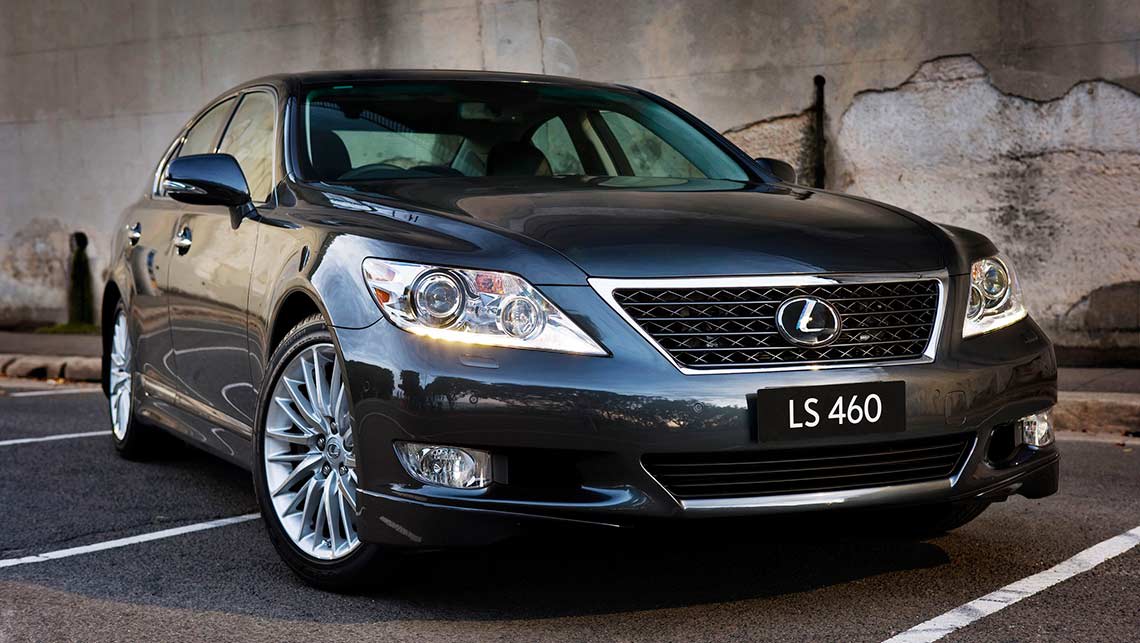The right car and a bit of fear can do a great job of clearing a congested road, even in a city as crowded as Tokyo.
There is an unwritten law about making space for big black or white limousines — usually a Mercedes-Benz S-Class or a Lexus LS — when you see them pushing their way through traffic.
If you see one of these cars blocking a driveway or parked on a corner, it's best to drive on by.
That is what the locals do — because Mr Average really does not want to cross paths with whoever might be inside the luxury Lexus or blitzer Benz.
It's the same for me. I like my life. One time, crawling along at 15km/h in heavy city traffic, I spot three black S-Class limos in my rear-view mirror and watch as they thread their way through the congestion.
Their precision at maintaining single-file formation and their ability to block both lanes by straddling the centre white lines is as eye-popping as it is educational.
Yet no one gets upset. No one honks a horn. No one thinks about calling the police.
When members of Japanese criminal society yakuza are on the move, you let them go.
But why do they choose the cars they do and what is their car culture?
The best idea was to sit with someone from the yakuza and ask, but that is something a Japanese writer would never even consider.
Why? Because Japanese think it's too direct or even rude to ask such a question.
But a foreigner, even one with fluent Japanese after 20 years in the country, has more licence.
There are still rules and you can plead ignorance, but you have to be aware that if you cross paths with this underworld society you had better know when you can ask questions and when to shut up and move on.
After many weeks of tip-toeing around potential cross-cultural minefields and careful diplomacy to locate a possible candidate, one yakuza boss finally agreed because, as I understood it, he was intrigued with the foreign media.
Fighting back the urge to ask him whether he'd seen Michael Douglas's yakuza movie Black Rain, or if he watched the TV series The Sopranos, we agreed to meet in a park in Tokyo.
I could tell you the exact location, but then I'd have to kill you. Just kidding.
We spoke about cars, brands, status and driving, and his candid replies were unexpected.
These guys were not packing weapons, of course, because in Japan the yakuza don't normally carry guns.
Even so, the extent of their politeness and concentration on my questions was a surprise.
“So, why do you drive an S-Class Mercedes?” I ask.
As expected, the boss talks about Mercedes' strong build quality, as well as the car's power and high status levels.
“The S-Class has plenty of power, looks good on the road and has a lot of luxury inside. Nothing really comes close, except maybe a Lexus LS,” he said.
After one obvious question and a straightforward answer, I push my luck a little.
“So why do you use tinted windows?”
Without any hint of irritation, he answers: “Because we like our privacy. It also pays when certain people (our rivals) cannot see inside our car.”
I query: “But why choose left-hand drive?”
He says: “They don't come in right-hand drive, so we settle for left.”
That may have been the case 10 years ago in Japan, but now you can get an S-Class in right and left-hand drive.
Still, these well-dressed gents will stay with left-hand drive because it commands more status — or generates more fear — and that is very effective at clearing a crowded road.
Feeling comfortable with the interview, I ask how they practise for the tight formation driving I witnessed.
“I'm not quite sure what you're talking about,” he said, and I realise I am pushing my luck and have used enough of his time.
Bowing profusely, I thank the yakuza and humbly excuse myself.
Japan is a country of extremes and that is reflected on the road.
On the surface, people seem very polite and courteous. And most are.
Even road rage is far less of a problem than in many Western countries.
Japan is a land steeped in traditional and unwritten rules, and you have to know your place.
If you're going to drive in Japan's mega-cities you need to be aware of an underworld organisation that lives a parallel existence to mainstream society.
One day it might confront you, so knowing how to respond — or not — is one way to remain on the streets.
As the yakuza boss says: “You have to know your place and show the right level of respect. Otherwise things can get out of hand, and quickly.”














Comments